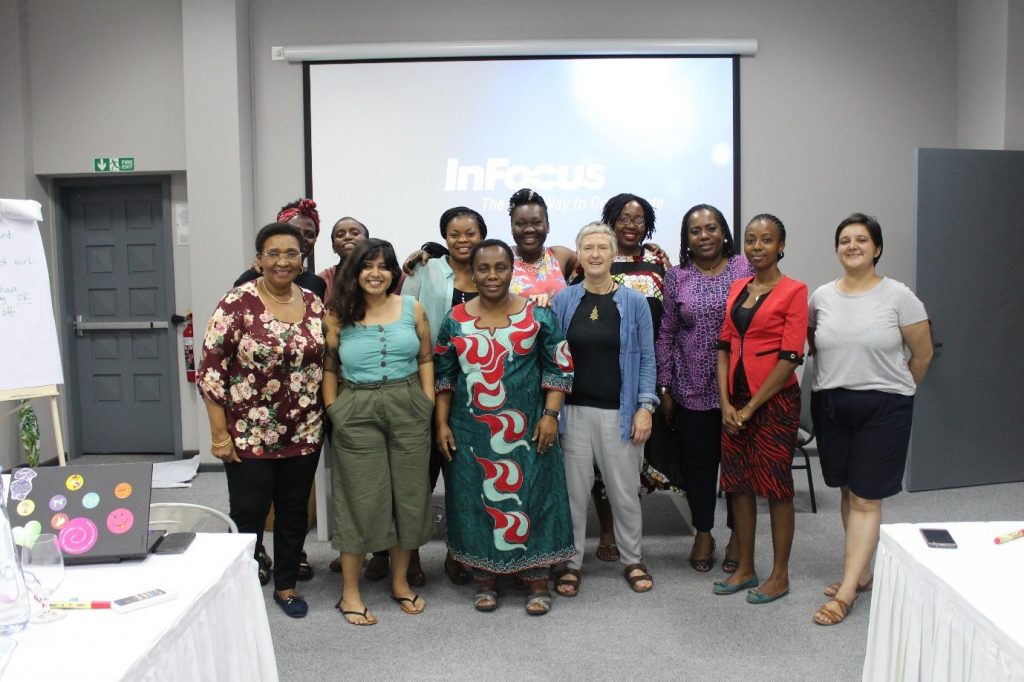
By Ablodegbo Ameyo Savi Dekoleadenu
8/11/2018
According to www.feministinternet.com, the internet holds huge potential for political transformation and liberation. It is a platform that provides a variety of information and communications facilities that can be harnessed to build political coalitions. The report on “State of Internet Freedom in Africa 2018 indicates that globally, the use of internet is on the rise; for instance in Africa, internet usage is fast growing among individuals, enterprises and government departments and with strengthened online participation, women have also been able to increase their involvement in public and political life.
Internet equality1 per the definition of www.feministinternet.com means equal rights to freedom of expression, privacy, data protection, internet access, regardless of race, class, gender, age, belief or ability. Therefore, a feminist internet space can be defined as a place where the same human rights principles we fight for offline exist online; a place where governments cannot spy on activists and free speech is a right; a place where women feel free to engage in a ways they choose to without any trolls; a place where women can share their work, achievements, and creativity in order to empower themselves.
Yet, for women and women’s rights organisations to enjoy the full benefits of the internet, there should be the elimination of a set of barriers including violations of privacy and data protection, the poor state of internet freedom, the unauthorised use and manipulation of personal information including images and videos, sexual harassment, gender-based violence and hate speech against women online among others.
The report on the State of Internet Freedom in Africa 2018 emphasises on the right to privacy which is central to the protection of human dignity, forms the basis of any democratic society and supports other rights such as the freedom of expression, information and association. Therefore, it is essential for states to have policy frameworks that protect individuals from invasion of their privacy and abuse of their personal data and rights.
According to the same report, some African countries have enacted data protection laws, many ICT users are unaware of their related privacy rights .In Africa, for instance, 22 countries have privacy and data protection laws namely Angola (2016), Benin (2009), Botswana (2018), Burkina Faso (2004), Chad (2015), Cape Verde (2001), Cote d’Ivoire (2013), Equatorial Guinea (2016), Gabon (2011), Ghana (2012) Lesotho (2012) Madagascar (2014) Mali (2013), Mauritius (2017), Mauritania (2017), Morocco (2009), Senegal (2008), Seychelles (2002), South Africa (2013), Tunisia (2004), Zambia and Zimbabwe (2003). In March 2018, the Uganda Communications Commission ordered the registration of online content2
While there are efforts in some countries to address problems faced by women and women’s rights organisations in the internet space, gaps in policy and practice persist and there is need for practical solutions to deepen understanding of the realities of being online for women and being subjected to abuse, harassment, and threats.
Several conferences, forums and workshops are held in different parts of the globe in order to find solutions to issues faced by women and women’s rights organisations in the digital world. These include:
Gender, Sexuality, and internet (April 2014) organised by Association for Progressive Communications (APC) which drafted The Feminist Principles of the Internet, series of statements that offer a gender and sexual rights lens on critical internet-related rights.
Forum on Internet Freedom in Africa (September 2018) organised by Collaboration on International ICT Policy in East and Southern Africa in partnership with the Media Foundation West Africa) where the book on the State of Internet Freedom in Africa 2018 was launched.
The Diana Initiative’s 2018 conference (August 2018), organised by the DIANA initiative, an organisation that is dedicated to supporting women who are interested in pursuing a career in information security, promoting diverse workplaces, and helping to change workplace cultures so that organisations can be supportive of all employees regardless of gender.
AppSec Europe annual conference (July 2018) hosted by the Open Web Application Security Project (OWASP), a non-profit organisation which strives to raise the visibility of software security worldwide.
Africa Cyber Security Conference (October 2018) which talked about technology and innovations.
International Network of Women’s Fund (Prospera) was not left out. It discovered the need for its members (Women’s Funds) to be enlightened on issues of internet security. Therefore, on November 6th and 7th 2018, Prospera members met in Ravenala Attitude Hotel Port Louis Mauritius to have a workshop on Digital security. During this 2day training participants became more aware of the rudiments of digital security and learnt how to protect themselves as individuals and as women’s rights organisations when engaging online. It was an interactive discussions in which participants shared their experiences of online activism. Some include email and system hacking, trolling, and being attacked by governments’ officials because of speech published online. It was clear that the online world is just a mirror of our offline world.

Participants at the Digital Security workshop organised by Prospera 6-7/11/18
At the end of the training, the following recommendations were made:
- Drafting a privacy policy clearly stating for instance how information collected either by the organisation or from the organisation should be used. This policy should then be shared with grantees and potential grantees, partners and potential partners so as to be aware of dangers associated with non-conforming to using the privacy policy when transacting with the organisation.
- Having a secure website that is https (HyperText Transfer Protocol Secure) instead of http (HyperText Transfer Protocol)
- Backing up data
- Having strong storage systems
- Re-setting passwords on a regular basis
- Investing in more sophisticated anti-virus systems and other security softwares
- Organising training for staff on a regular basis to broaden their knowledge on digital security issues
- Encryption of calls, emails, folders, files…
- Using passphrases instead of passwords when opening any account
Sources: 1 www.feministinternet.com, 2 State of Internet Freedom in Africa 2018, Gender rights online
